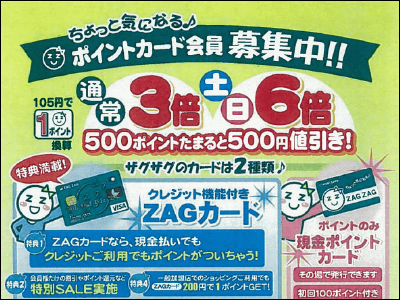The Smartphone Software Competition Promotion Act imposes fines of 20% of sales on companies that violate the law

On June 12, 2024, the House of Councilors passed the Bill on Promotion of Competition in Relation to Specified Software Used on Smartphones (Smartphone Software Competition Promotion Act), which became law. This law requires fair competition among digital platform operators. For example, if Google or Apple are designated as regulated operators in the oligopolistic app store market, they will no longer be able to prevent other operators from providing app stores.
● Bill on promoting competition regarding specific software used in smartphones
https://www.shugiin.go.jp/internet/itdb_gian.nsf/html/gian/honbun/houan/g21309062.htm
(June 12, 2024) Enactment of the 'Act on Promotion of Competition Concerning Specified Software Used in Smartphones' | Fair Trade Commission
https://www.jftc.go.jp/houdou/pressrelease/2024/jun/240612_digitaloffice.html
New law to regulate large IT companies passed in the House of Councillors | NHK | IT/Internet
https://www3.nhk.or.jp/news/html/20240612/k10014478361000.html
The background to the Smartphone Software Competition Promotion Act is that, while smartphones have become the foundation of people's lives and economic activity, the 'specific software' necessary for using smartphones, such as mobile operating systems, app stores, browsers, and search engines, is dominated by a very small number of powerful businesses.
In the market for this 'specific software,' oligopolistic businesses are engaging in restrictive behavior that is hindering fair and free competition. On the other hand, it is difficult for new entrants to voluntarily correct this, and it would take time to respond to each individual case under the Antimonopoly Act, making it difficult to restore fair and free competition.
In light of this situation, the purpose of this Act is to ensure the security of 'specific software,' while creating a competitive environment in which innovation by diverse entities occurs through competition, and consumers can choose from and benefit from a variety of services.
Under the Smartphone Software Competition Promotion Act, the Fair Trade Commission designates businesses that are above a certain size, as stipulated by government ordinance, as 'regulated businesses (designated businesses)' for each type of specific software.
Designated operators will be prohibited from restricting app stores from disrupting competition, restricting the use of billing systems, restricting the provision of information to users within apps, and engaging in unfair treatment of app operators.
| Overview of regulations (prohibitions and compliance matters) | |
| (1) Restriction of competition among app stores | - App stores must not be restricted to their own apps, and other businesses must not be prevented from providing their own app stores. (※ There is no obligation to allow direct downloading of apps from websites) [Article 7, Paragraph 1] *However, where a measure is necessary for security, privacy, protection of minors, etc., and it is difficult to achieve that objective through other actions, such measures may be taken (justification). |
| Restrictions on the use of billing systems other than those designated by the designated operators | - The use of other companies' billing systems must not be hindered, for example by making it a condition that the user not use other companies' billing systems. [Article 8, item 1] *Justification exists |
| Restricting user information provided within the app | - The app must not restrict the display of prices of items sold on the website or links to the website. ・Do not interfere with the sale of items, etc. on the website. [Article 8, Paragraph 2] *Justification exists |
| Unfair treatment of app providers | - App providers must not engage in unreasonable discriminatory or unfair treatment with regard to the terms of use of the OS or app store, or the conduct of transactions. [Article 6] |
| (2) Prohibition of use of browser engines other than those designated by the designated operators | - Users must not impede the use of other browser engines, such as by making the use of their own browser engine a condition. [Article 8, Paragraph 3] *Justification exists |
| (3) Default settings of designated service providers | - Default settings must be made changeable by general users through simple operations. [Article 12, Items 1(a) and 2(a)] - A selection screen showing options for other similar services such as browsers and searches must be displayed. [Article 12, Paragraphs 1(b) and 2(b)] |
| (4) Prioritizing the display of our services in searches | - In displaying search results, a company's services must not be given priority over the services of other companies that compete with it without a legitimate reason. [Article 9] |
| (5) Unauthorized use of data by designated business operators | - Designated businesses must not use the data they acquire, such as app usage and sales data, to provide services that compete with those of other app businesses. [Article 5] |
| (6) Restricting other operators' access to functions controlled by the OS | - Other businesses must not be prevented from using functions controlled by the OS with the same performance as designated businesses use in their apps. [Article 7, Paragraph 2] *Justification exists |
| others | - Obligation to disclose data management system, etc. [Article 10] - Obligation to provide tools for data portability [Article 11] - Obligation to disclose changes to OS and browser specifications, etc. [Article 13] |
In order to ensure the effectiveness of the regulations, provisions will be put in place such as making violations subject to a penalty of 20% of sales.
The Smartphone Software Competition Promotion Act will come into effect within one year and six months from the date of promulgation.
Related Posts:
in Note, Posted by logc_nt







